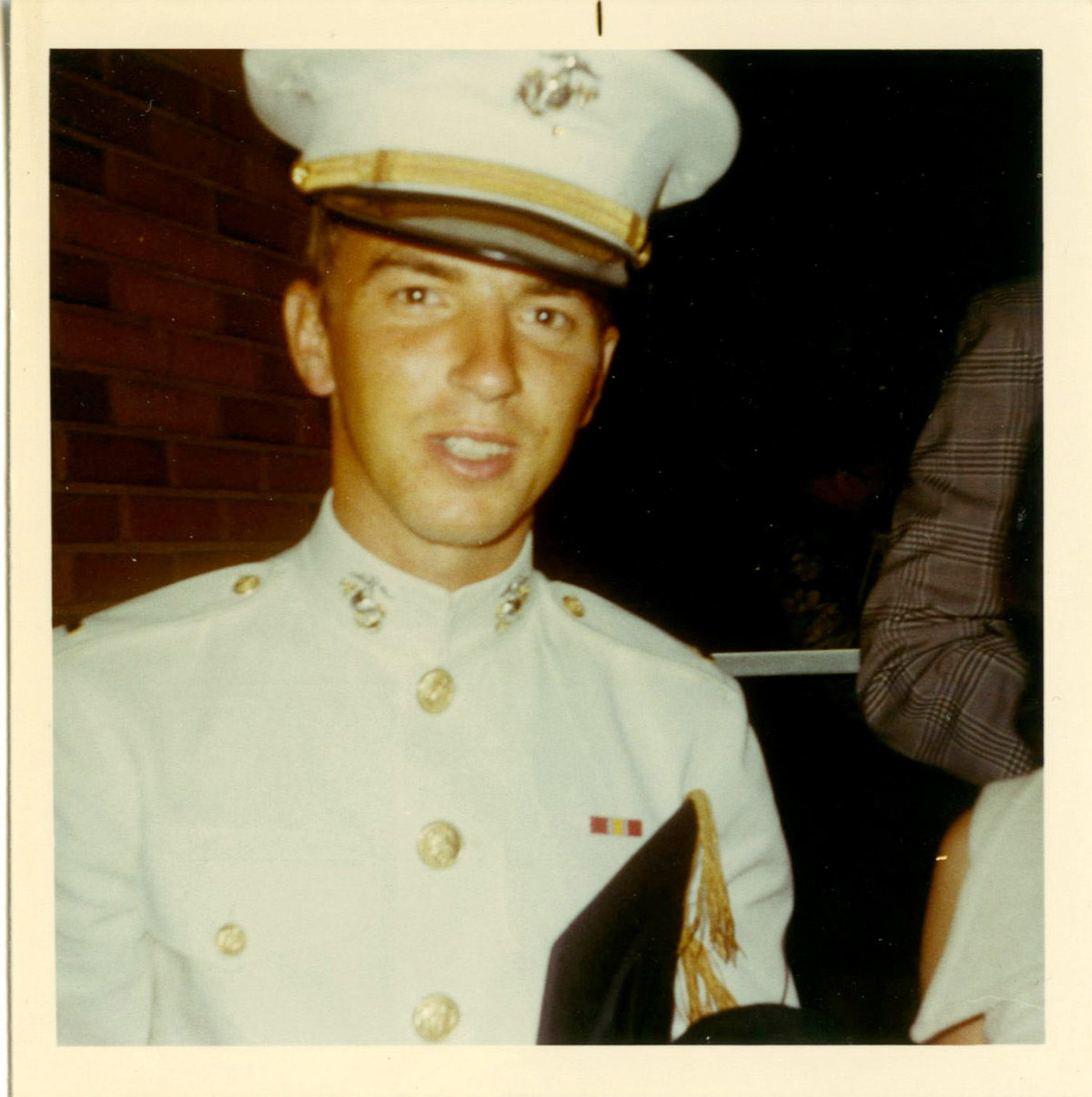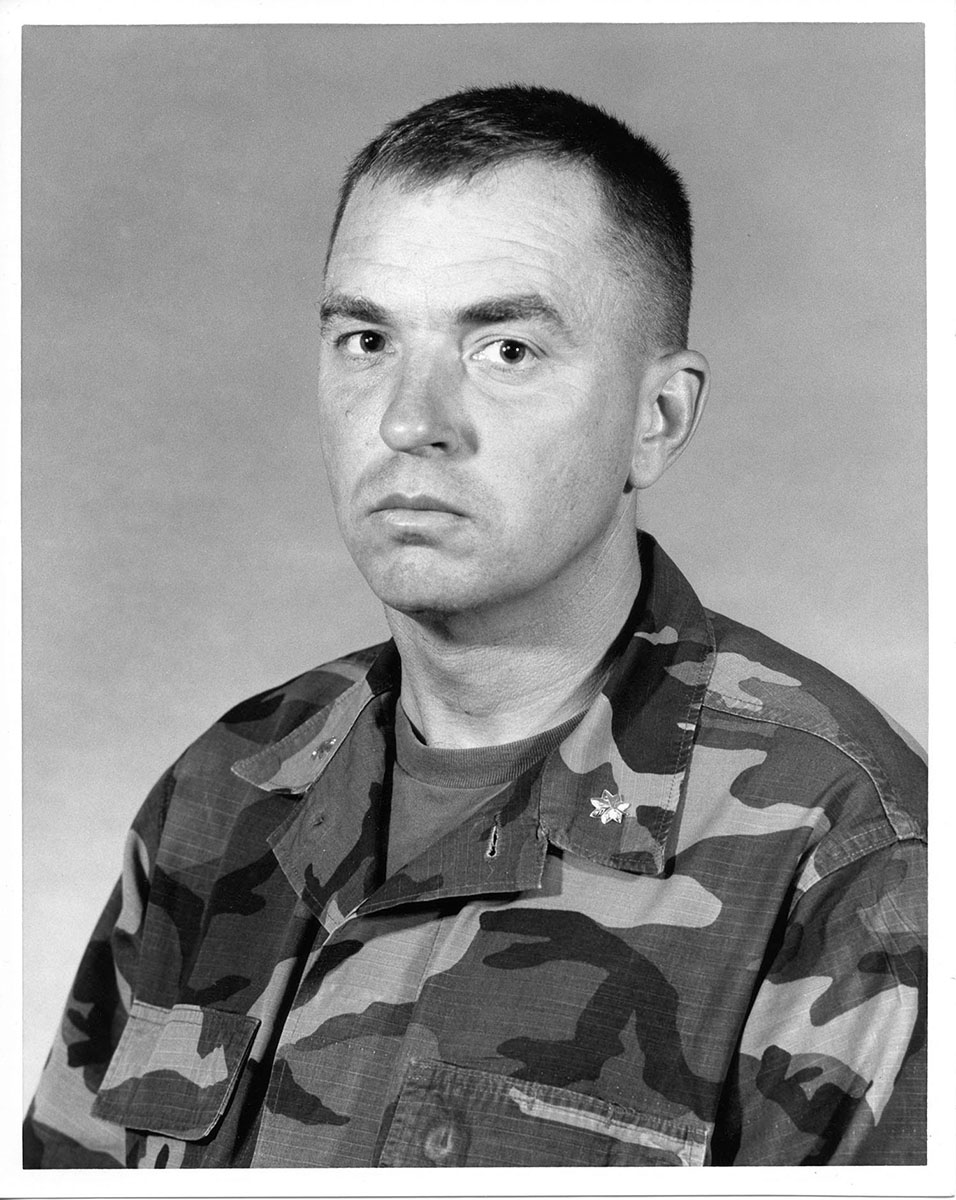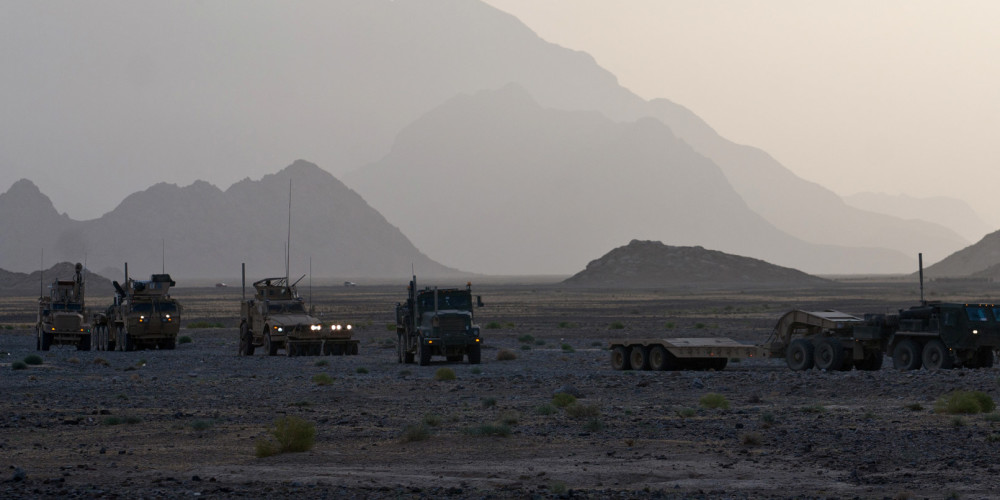“One of the great lies in life is that wars never solve anything; there are some bad guys that truly merit killing,” writes retired U.S. Marine Corps Col. Gary W. Anderson (’71, DB) in a blog published in the online Small Wars Journal.
Anderson is not a fan of war. His statement is a testament instead to his strong sense of right and wrong, his love of country and his penchant for speaking his mind.
Case in point: In December 1988, in a Washington Times article, Anderson criticized the Air Force, suggesting that it be dissolved and folded into the other military branches. The piece earned him a call from the Marine Corps Commandant and a temporary stay from public writing. “He took my crayons away for a while,” Anderson says.
Anderson’s rabble-rousing was honed at Embry-Riddle, where he wrote a weekly humor column for the Avion that would poke fun at staff and administrators. Highly involved in campus life, he wrestled and played baseball, coaching baseball his senior year. He was also president of the Alpha Eta Rho chapter, a professional college aviation fraternity.
Anderson says his Embry-Riddle experience helped him build leadership and persuasive communication skills, as well as an understanding of other cultures. “It gave me a more integrated view of the world,” he says.
Today, Anderson is a sought-after commentator for the media, a war-gaming expert and a well-published author on national strategy and military topics. “Gary is a go-to guy in Washington D.C. He’s on everybody’s Rolodex,” says his longtime friend John Keenan, a retired Marine Corps colonel and editor emeritus of the Marine Corps Gazette.
From Pilot to Infantry
Anderson originally wanted to be a military pilot and then transition to civilian airport management. He earned a B.S. in Aviation Administration and a flight contract with the Marine Corps, but failed his depth-perception test.

The first Marine Corps officer commissioned from Embry-Riddle, after the school moved from Miami to Daytona Beach, Anderson took the news in stride. “It gave me an excuse to transfer to the infantry,” he says. “I liked the idea of being in charge.”
He went on to serve 29 years in the Marine Corps before retiring in 2000. The ink was barely dry on his separation papers when he was named the first director for the Marine Corps’ Center for Emerging Threats and Opportunities. Shortly thereafter, he founded the Potomac Institute’s National Center for Unconventional Thought, where he continues to serve as a distinguished fellow.
The Challenge of Iraq
Anderson was only three years out of retirement when Uncle Sam called again—and he answered.
Shortly before the Iraqi government fell to U.S. forces, Anderson predicted an insurgency, and published his premonition in an op-ed in The Washington Post. Two months later, he received a call from then Deputy Secretary of Defense Paul Wolfowitz. “He [Wolfowitz] said, ‘I was hoping you were wrong, but you were right. Now what are you going to do about it?’”
Anderson volunteered pro bono to serve as a special advisor to the deputy secretary of defense in Iraq to assess the situation and help create and train an Iraqi Civil Defense Corps to act as a counter insurgency force.
By 2009, Anderson’s consulting firm had been sold and the State Department asked him to return to Iraq. As senior governance advisor for Abu Ghraib in West Baghdad, Iraq, he led the governance, democratization and political development efforts for a region of more than 5 million people.
“I wasn’t as positive about leaving Afghanistan as I had been in Iraq. If our goal was to turn Afghanistan into a model democracy, we would never be able to do it. It would do better as a confederation of quasi-states.”
One of his greatest disappointments was what he calls the ultimate failure of the U.S. effort in Iraq. “I really thought when we left Iraq that we had accomplished the mission,” he says. Unfortunately, the Shiite government started persecuting the former ruling class, the Sunnis, setting the country up for failure, Anderson explains. “They weren’t ready yet, neither the Army nor the government.”
Call to Afghanistan
In 2011, Anderson answered the government’s call to serve as a district support team leader and governance advisor in a remote province in northwest Afghanistan. A year later, when President Obama announced the imminent departure of U.S. troops from the country, Anderson was given two months to close up shop.
“I wasn’t as positive about leaving Afghanistan as I had been in Iraq,” he admits. The geography and lack of infrastructure there are real challenges, he says. “If our goal was to turn Afghanistan into a model democracy, we would never be able to do it. It would do better as a confederation of quasi-states.”
Urban Trenches
As an officer who served primarily in non-combat roles, Anderson managed to avoid violence for most of his active duty career. “I was shot at more as a civilian [in Iraq and Afghanistan] than when I was active,” he says.

The closest he came to combat was in Mogadishu, Somalia. Serving as a temporary U.S. liaison officer to the U.N., Anderson’s personal goal was to build a case study on noncombat missions for a course he was teaching at the Marine Corps University. The U.N. aid mission degenerated quickly. On an August night in 1993, Somalian snipers started targeting U.S. Army logisticians at the U.N. compound. The American ambassador authorized Anderson to use his security team to eliminate the sniper pit, and his Marine sharpshooters did their jobs.
The next morning, they viewed the results. “There were 17 bodies and not one was over 17 years old,” Anderson says somberly. “I went to Somalia to study peace and love [humanitarian missions] and I ended up killing 17 people.”
Spurred by his experiences in Somalia, Anderson established an experimental unit that began exploring handheld unmanned aircraft systems for urban surveillance and nonlethal weapons for hostile, unarmed crowds. The program, which would become the Marine Corps Warfighting Lab, now employs more than 100 people and operates on a $40 million annual budget.
Slowing Down?
Now, though “officially” retired, Anderson continues to blog, writes regular book reviews for The Washington Times and contributes opinion editorials to The Washington Post. He is also an adjunct professor at George Washington University’s Elliott School of International Affairs and a part-time consultant for the U.S. Army. He and his wife of 45 years, Anne, whom he met while studying at Embry-Riddle, reside in New York in the summer and Daytona Beach in the winter.
In December 2015, Anderson was asked to return to Afghanistan to continue transition work begun in 2013, but declined, having promised his wife he would give retirement an honest try. “It’s probably the first time I haven’t heeded the trumpet,” he says. “But never say never.”
Editor’s Note: Anderson is the recipient of the 2012 Embry-Riddle Alumni Military Achievement Award.
